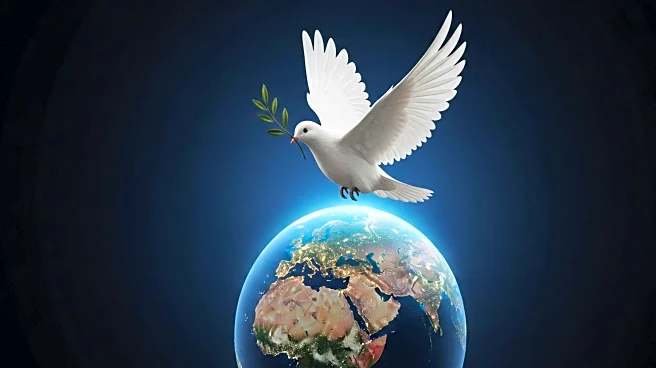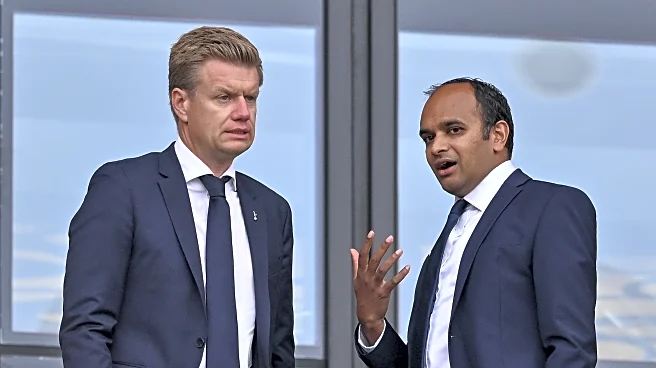What is the story about?
What's Happening?
President Trump has successfully brokered a ceasefire agreement between Israel and Hamas, marking a significant development in the ongoing conflict in Gaza. The agreement, described as the 'first phase' of a peace plan, involves a pause in fighting and the release of hostages and Palestinian prisoners. This breakthrough comes after two years of intense warfare that has resulted in significant casualties and destruction in Gaza. The deal includes the withdrawal of Israeli troops, the entry of humanitarian aid into Gaza, and the exchange of prisoners for hostages. While the agreement represents progress, many details remain unresolved, and the situation continues to be complex.
Why It's Important?
The ceasefire agreement is a pivotal moment in the Israel-Hamas conflict, potentially leading to a reduction in violence and humanitarian relief for the people of Gaza. The involvement of President Trump and the U.S. administration underscores the significant role of international diplomacy in resolving long-standing conflicts. The exchange of hostages and prisoners could pave the way for further negotiations and a more comprehensive peace plan. This development may also influence regional stability in the Middle East, where tensions have been exacerbated by the conflict. Stakeholders, including neighboring countries and international organizations, are likely to monitor the situation closely.
What's Next?
Following the ceasefire agreement, the focus will likely shift to implementing the terms of the deal, including the release of hostages and prisoners. The entry of aid into Gaza is expected to be a priority, addressing urgent humanitarian needs. The withdrawal of Israeli troops from Gaza will be a critical step in reducing military tensions. Future negotiations may aim to solidify the ceasefire and explore long-term solutions to the conflict. The international community, including the U.S., may continue to play a role in facilitating dialogue and ensuring compliance with the agreement.
Beyond the Headlines
The ceasefire agreement may have broader implications for U.S. foreign policy in the Middle East, potentially affecting relations with other regional powers. The humanitarian aspect of the agreement highlights the ongoing challenges faced by civilians in conflict zones. Ethical considerations regarding the treatment of prisoners and hostages may arise, influencing public opinion and policy decisions. The long-term impact on Gaza's reconstruction and development will be a critical issue, requiring sustained international support.
















